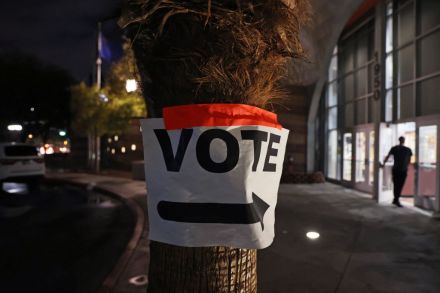Midterms: No red wave, America is still very divided
Is it a red wave? A ripple? Or a trickle? Nobody quite knows. However, what looks certain is that the Republican blow out that many right wing pundits were anticipating has not happened. Crucially, the Democrats have won the crunch Senate race in Pennsylvania. John Fetterman, the man who had a stroke just a few months ago, defeated Mehmet Oz, who the late polls suggested would win. Elsewhere, it turns out the polls were right — the Senate races are incredibly tight. It looks as if a dramatic late surge for Adam Laxalt in Nevada means the Republicans should squeak another Senate victory for there. So … over to Georgia,





















